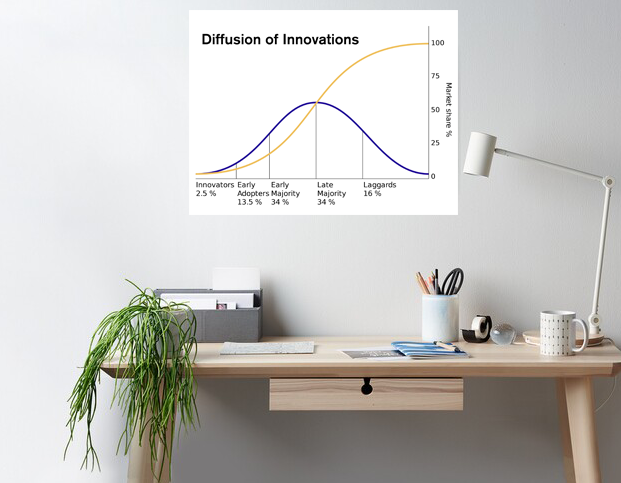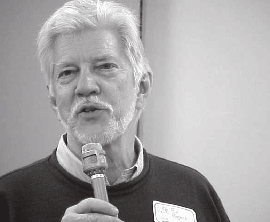-
Welcome To The Diffusion Research Institute
READ MOREOur mission is to extend and enhance the influential work of Everett Rogers. The goal of The Diffusion Research Institute is to discover, develop, and disseminate actionable, prescriptive methods for accelerating the adoption of meaningful innovations.
-
Psychographic Profile Analysis
READ MOREWe conduct in-depth research that solves problems caused by human resistance to the diffusion of new ideas, products, technologies and methods.
-
Innovation-Adoption Theories and Models
READ MOREThe purpose of the Diffusion Research Institute’s activities is to develop actionable diffusion-based models and methods that guide business leaders in their most critical growth and innovation decisions.

People resist innovations that require new learning
Fear of failure, worries about looking stupid, or preferences for the status quo, hold many people back from learning about new innovations.
read more
Technology adoption is glamorized
While technology adoption may seem pervasive, a vast number of businesses still rely on simple PCs, pen and paper to get work done.
read more
It's not a chasm, it's a continuum
Sociologist Everett M. Rogers was clear when he stated, “Past research shows no support for this claim of a chasm between certain adopter categories."
read more
Models built upon diffusion of innovations
Since it was first published in 1962, Diffusion of Innovations has formed the foundation of several popular models and frameworks.
read moreDiffusion Research Institute Progress
Research Studies
Million USD Funds Committed
Research Members
About Diffusion Research Institute
The Diffusion Research Institute is a research and community project inspired by the late Professor Everett M. Rogers (1931-2004). Professor Rogers is regarded the world’s most influential thinker on innovation-adoption and diffusion.
The purpose of The Institute’s research activities is to sift through the many sources of information and advice available to identify theories and frameworks that can serve as a reliable guide for business leaders and entrepreneurs.
Watch Everett Rogers review and analyze the evolution of the landmark model he created called Diffusion of Innovations
Diffusion Research Articles:
-
The Role of Reinvention in Technology Adoption
November 8, 2025 -
Adoption of Innovations Explained
September 8, 2025 -
Chasm Theory Development: The Complete History
February 18, 2025 -
Origins of the Diffusion Paradigm
June 3, 2024
About Diffusion Research
The Diffusion Research Institute conducts independent, in-depth research that solves problems related to the slow adoption of new ideas, products, technologies and methods.
We are a nonprofit organization devoted to the development of pragmatic and actionable methods that address the issue called innovation resistance. DRI’s commitment to providing unbiased research is rooted in the individual independence of its scholars. Therefore, the Institute does not take positions on specific issues.
Most formal research is only descriptive in nature, identifying the factors that correlate with success rather than those that cause it. The Institute aims to re-invigorate innovation management excellence by following a proven process for building sound theory, refining it through collaboration with practitioners, and then distributing it to a broad audience.

Dr. Everett M. Rogers
Biography
Everett M. "Ev" Rogers (March 6, 1931 – October 21, 2004) is acknowledged as the pre-eminent authority on how innovations diffuse, or spread, in an economic or social system. His writings on the diffusion of innovations established the term "early adopter" and normalized the importance of peer-to-peer comm
-
1952
B.S. in Agriculture
Iowa State University -
1955
M.S. in Rural Sociology
Iowa State University -
1957
Ph.D in Rural Sociology
Iowa State University
